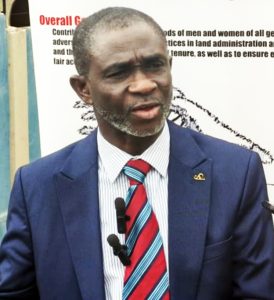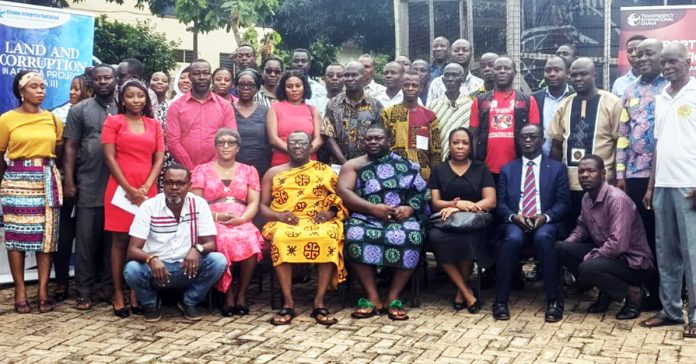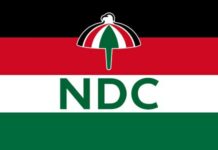Transparency International Ghana (TI-G), formerly Ghana Integrity Initiative (GII), in partnership with the Lands Commission, has held a multi-stakeholder advocacy workshop on Land Governance in Ghana.
The workshop, under the theme: “Strengthening Inclusive Land Governance in Ghana”, sought to bring together diverse stakeholders, including government representative, traditional authorities, civil society organisations, women and youth groups and private sector actors to engage in dialogue and develop inclusive, accountable and equitable approaches to land governance in Ghana.
The workshop was also to build on ongoing efforts to promote transparency, secure tenure and participatory decision-making at all levels.
The objective was to assess the effectiveness of the current customary and statutory land governance frameworks in ensuring equitable access and tenure security and to identify and discuss barriers to land access and participation faced by women and youth, other marginalised groups and also to draft a joint communiqué to be validated by participants.
The objective was also to inform ongoing land policy reforms, dialogues and advocacy efforts at national and subnational levels.

Mr. Michael H. Okai, Coordinator, Land and Corruption in Africa (LCA) Project of TI-G disclosed that his outfit is implementing a project on land and corruption not only in Ghana but other seven African countries (Kenya, Zimbabwe, Zambia, Madagascar, South Africa, Uganda and Ethiopia).
Its (LCA’s) main objective is to eradicate corruption in land administration and services, with support from Bundesministerium für wirtschaftliche Zusammenarbeit und Entwicklung (BMZ), German for Federal Ministry for Economic Cooperation and Development.
He explained that land administration goes beyond the government sector, noting that about 80 percent of land in Ghana is held under customary tenure arrangements by traditional leaders.
The Coordinator disclosed that as part of the project, his outfit did a baseline of issues around lands in Ghana and discovered that there are issues of multi-sale of land, women and youth inaccessibility to land as a right and the citizenry unawareness of the passage of the Land Act 1036 in 2020. He also disclosed the non-involvement of stakeholders (chiefs and citizenry) in policy making and subsequently developed “interventions”.
He also disclosed that the LCA entails awareness on land, vis-a-vis corruption and Land Act, 2020 (1036), noting that if the citizenry is informed about the law, they know their “rights, roles and responsibility”.
He said the project (LCA) has been in existence for four years and revealed that at end of the project, the learnings and challenges from the Ashanti region would be brought to the fore for resolution that will aid in drafting a policy-brief to be channelled to the appropriate quarters.
Mr. Peter Osei Owusu, Ashanti Regional Officer, Lands Commission, disclosed that having worked in six other regions, the Ashanti region’s land system is “different”, due to its traditional setup.
He noted that the Ashanti region has a “centralised traditional authority” when it comes to the administration and management of stool lands, stressing that all lands in Greater Kumasi “must be comfirmed by His Royal Majesty, Otumfuo Osei Tutu II, the Asantehene, who has allocated some of the “powers” to few paramouncies such as Ejisu and Juaben, where the chiefs can work under the directions of Otumfuo.
Mr. Peter Osei Owusu noted that in the Greater Accra and Central regions, families own lands with litigation among them, citing Dagbon, in the Northern region, to also having one of the unique land administration and management system, where the Yaa-Naa appoints his sub-chiefs to act on his behalf and all documents are confirmed by him (Yaa-Naa).
The Ashanti Regional Lands Commission Officer also disclosed that where there are disputes and litigations, people are ready to pay to get their lands registered, noting that investors like to go to the regions where there are no or minimal litigations, because investment in agriculture and industrial purposes are based on land.
From Oswald Pius Freiku, Kumasi









